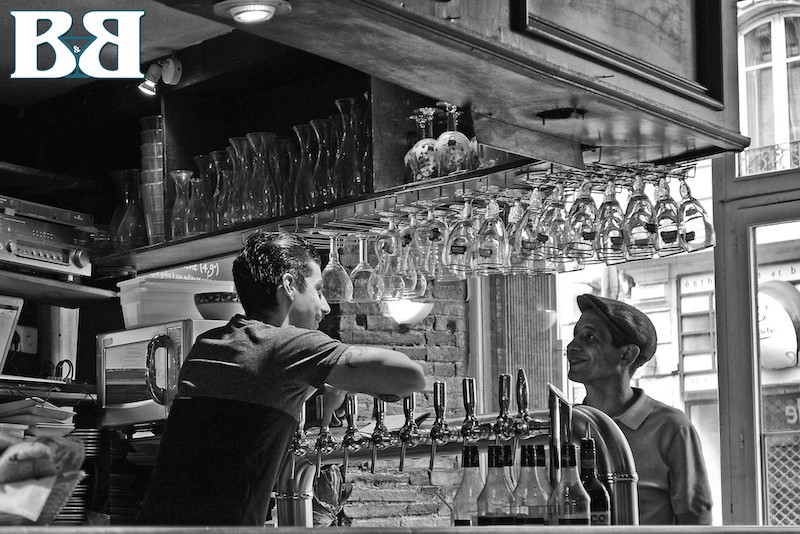Bartending And Communication Skills
Bartenders are often seen as the lifeblood of any party, with their ability to make a room come alive with conversation and laughter. But most people don’t realize that there is much more to being an effective bartender than just mixing drinks – it’s about having the right communication skills.
Whether you’re already a professional bartender or just starting out in the field, honing your communication skills can help you become more successful. In this article, we’ll explore how bartending and communication skills go hand-in-hand and how you can use them to your advantage.
By understanding the nuances of communication between customer and bartender, you can create an enjoyable atmosphere for both parties. This will not only make your customers feel welcome but also add a layer of professionalism to your work – something that will surely catch the eye of potential employers and regular customers alike!
1. Understanding The Basics Of Bartending
When it comes to bartending, having a solid foundation of knowledge is essential. Everything from understanding drink recipes and alcohol measurements to mixing and pouring drinks must be mastered. Understanding the basics of bartending also requires understanding customer service and communication skills.
These skills mean that bartenders can anticipate their customers’ needs to provide exceptional service. Additionally, being able to communicate clearly with customers is important to ensure that their orders are fulfilled accurately and efficiently. This includes providing product descriptions, making recommendations, and responding appropriately to customer feedback.
Overall, having a good understanding of bartending and communication techniques helps bartenders deliver excellent drinks and great customer service.
2. Building Rapport With Customers
Understanding the basics of bartending is only half the battle when it comes to excellent customer service. The other half is building rapport with clients. Therefore, communication skills are essential to cultivating relationships that result in a positive experience for everyone involved.
First, greet with a warm and friendly attitude. Second, smiling is important and making eye contact goes a long way toward showing appreciation for their presence in your establishment.
TIP: It’s also wise to remember names, as this will help build trust and foster an atmosphere of familiarity.
Additionally, be sure to take time to get to know customers personally. Ask questions about their interests and hobbies outside of the bar or restaurant. Showing genuine interest in people helps create lasting connections beyond simply pouring them drinks. Ultimately, developing strong communication skills is critical to creating an enjoyable atmosphere for patrons and staff alike.
3. Key Factors That Make A Good Bartender
Good bartenders are not just skilled in making drinks and creating a pleasant atmosphere for customers. Essential communication skills are also needed to provide excellent customer service. There are three key factors that make a good bartender:
First, they must be knowledgeable about the drinks they serve. A good bartender should be able to suggest different types of cocktails and other drinks according to the customer’s preference. They should also know how to mix and serve the drinks properly.
Second, effective listening skills are essential. Listening carefully to a customer’s order and understanding their needs is important in providing excellent service. It is also necessary for a bartender to understand the body language of customers as well as their verbal cues so that they can adjust accordingly.
Finally, it is important for bartenders to be friendly and personable with customers. Establishing an enjoyable conversation with customers can help build rapport between them and the bartender, thus making them feel more comfortable during their stay at the bar or restaurant. A warm welcome, along with kind gestures such as offering complimentary snacks or refills, can help create a positive experience for customers which they will remember fondly when they leave.
4. Developing Conversation Skills
When it comes to bartending, conversation skills are just as important as any other skill. Not only do you need to be able to make great drinks and provide excellent customer service, but you also need to know how to build rapport with your customers. Developing strong conversation skills can help a bartender create an enjoyable atmosphere for customers and build a loyal customer base.
There are several key elements that make up effective communication:
• Establishing Connections: It’s important for a bartender to be able to quickly connect with their customers in order to make them feel welcome and comfortable. A few simple conversational techniques such as making eye contact, smiling, and using the customer’s name can go a long way in creating an inviting atmosphere. Additionally, being able to read body language can help the bartender understand what kind of conversation the customer is looking for.
• Active Listening: Listening is one of the most essential parts of communication. As a bartender, it’s important to be attentive and show genuine interest in what your customers have to say. Taking notes or asking questions about what your customers are discussing can go a long way in showing that you’re actively listening and engaged in the conversation.
• Showing Empathy: In addition to active listening, it’s also important for bartenders to be able to empathize with their customers. Being able to put yourself into someone else’s shoes can help foster more meaningful conversations and create stronger connections between the bartender and their guests. Furthermore, showing empathy will allow the bartender to better understand how they can best serve their customers’ needs while providing a more personalized experience.
Effective communication is essential when it comes to providing great customer service at any establishment, but especially when it comes to bartending where engaging conversations with customers are part of the job description.
5. Learning How To Diffuse Conflicts
Diffusing conflicts is an important skill for bartenders to learn, as it can help them handle difficult customers and ensure that everyone has a pleasant experience at the bar. It requires a combination of interpersonal skills, clear communication, and knowledge of how to address conflict in a constructive manner. Here are four key strategies for bartenders to employ when diffusing conflicts:
Firstly, it is essential to remain calm and composed in any situation. This allows the bartender to think logically and respond with respect instead of reacting emotionally.
Secondly, it’s important to listen actively during conversations with customers and pay attention to what they say. It also helps to ask clarifying questions if something isn’t understood.
Thirdly, recognizing the customer’s feelings is paramount as this conveys empathy and shows that the bartender cares about their concerns.
Lastly, offering solutions that are beneficial for both parties can help resolve the conflict amicably.
Bartending can be a challenging job but learning how to effectively diffuse conflicts can make it much more manageable. With practice and dedication, bartenders can become adept at addressing customer complaints and ensuring positive experiences for all patrons at the bar.
How Do I Handle Difficult Customers?
When running a bar, it’s inevitable that you’ll come across difficult customers. It can be challenging to handle these interactions in a way that satisfies everyone involved. To ensure a positive customer experience, it’s important to understand the basics of communicating with frustrated guests.
The first step is to stay calm and maintain a professional demeanor. Even if the customer is getting heated, try to remain friendly and polite. This can help de-escalate the situation while also making sure that they’re not treated poorly or disrespected. In addition, take some time to listen and try to understand what the customer is saying. Acknowledging their complaints and attempting to work with them on solutions will help create an atmosphere of understanding and trust.
Finally, clearly explain your expectations and any policies you have in place so that customers know what they can expect from you and your business. Having clear communication lines open between you and your guests can help ensure everyone’s needs are met without creating additional tension or stress. With effective communication skills, difficult customers don’t have to be a source of frustration for bar owners but instead an opportunity for growth in understanding and respect for all parties involved.
6. Providing Professional Customer Service
Providing professional customer service is a key part of bartending. It involves understanding the customer’s needs, being able to interact with them in an appropriate manner, and being able to problem solve any issues that may arise. This skill set can be further developed through communication training, which focuses on how to effectively read body language and be aware of any potential conflicts that may arise.
Being able to express yourself clearly and calmly in difficult situations is essential for providing good customer service. By having strong communication skills, bartenders can help diffuse conflicts before they escalate. They can also use their words to effectively manage customers’ expectations and ensure that everyone is having a good time. Additionally, bartenders must be friendly with patrons while still maintaining a professional demeanor.
In order to provide positive customer experiences, it is important for bartenders to remain focused on providing excellent service at all times. This includes ensuring that drinks are served quickly and correctly, making sure customers feel valued and heard throughout the night, and knowing when it’s necessary to step back from a situation or call for help if needed. With these skills in place, bartenders will be well-prepared for any situation that may arise during their shift.
7. Knowing How To Listen Effectively
Listening effectively is an important skill for bartenders. It helps them to create meaningful connections with customers, fostering a positive atmosphere in the bar. Being able to truly hear what patrons are saying helps build trust and rapport, which often makes them more likely to return in the future.
Listening requires focused attention and an open mind. Bartenders should strive to actively listen and not just wait for their turn to speak. This means being present with the customer, taking in their words without judgement or assumptions. It’s also important for bartenders to provide verbal cues that show they understand what the customer is saying, such as making eye contact, summarizing what was said or asking follow up questions.
These techniques help show customers that they are being heard and that their opinions matter. As a result, customers will be more satisfied with the experience at the bar and feel more respected by staff members. Moreover, listening actively builds better relationships between bartenders and guests over time, creating a welcoming environment for everyone who visits the bar.
8. Benefits Of Good Bartending Communication Skills
One of the most important benefits of good bartending communication skills is improved customer service. Being able to communicate effectively with customers helps bartenders understand what their guests need and anticipate their needs before they ask. This level of proactive service can make a big difference in the overall satisfaction level of patrons. Additionally, being able to effectively communicate with other staff members can boost efficiency and productivity behind the bar.
Another key benefit of having strong communication skills is being able to handle difficult situations that may arise during a shift. Whether it’s dealing with a disgruntled customer or resolving a disagreement between staff members, good communication can help de-escalate potential conflicts quickly and keep everyone safe in the process. Bartenders must also be able to accurately relay orders from customers to kitchen staff and ensure that orders arrive in a timely fashion, which requires solid communication on both ends.
TIP: To practice effective communication while tending bar, take time before each shift to review all menu items so you’re prepared to answer any questions from customers about them accurately and confidently.
Communication is key in the bartending business. Making sure that you are able to speak to your customers on their level, whether it be friendly conversation or addressing their concerns – is essential for building relationships with regular customers as well as attracting new ones. It’s also important to remember that there are many different types of customers who come into bars so having the ability to speak comfortably with everyone is important for creating a welcoming atmosphere.






